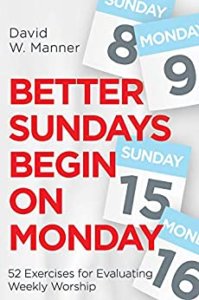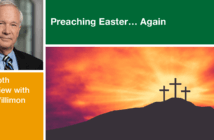How can you inspire your worship attendees to be active participants rather than casual bystanders? David W. Manner explores the metaphor of travelers versus tourists to consider what it means to be fully engaged in worship.
In Teaching a Stone to Talk, Annie Dillard wrote, “Why do we people in churches seem like cheerful, brainless tourists on a packaged tour of the Absolute? The tourists are having coffee and doughnuts on Deck C. Presumably someone is minding the ship, correcting the course, avoiding icebergs and shoals, fueling the engines, watching the radar screen and noting weather reports radioed from shore. No one would dream of asking the tourists to do these things.”
Worship tourists
If we never involve our congregants as more than casual bystanders while we read, speak, sing, play, pray, testify, lead, mediate, commune, baptize, confess, thank, petition, and exhort, then how can we expect them to transform from passive spectators to active participators? Aren’t we really creating worship tourists who select their destination based solely on their impression of the platform tour guide and excursion offered rather than worship travelers on a continuous journey?
Tourists, on the one hand, sample other cultures as long as they aren’t too different from their own. They expect others to adjust to them. Inconvenience for a tourist is always inconvenient because it discourages pleasure and preference. Tourists only scratch the surface and ask what, when, and how much. They only go where the map takes them, are there to experience the sites, aren’t willing to stray away from their native language, and always ask, “What’s in it for me?” Worship tourists are onlookers or observers, much like they would watch an event or game. They are audience members or spectators who might be a fan or foe depending on who is playing and what is being played. And they think they are in the game because they are in the stands.
Worship travelers
Travelers, on the other hand, willingly immerse themselves in cultures even when they might be radically different from their own. They adjust instead of expecting others to adjust to them. Inconvenience to the traveler is never inconvenient because it encourages discovery. Travelers always dig deep and ask who and why. They go where the road takes them, are there to understand the sites, attempt to learn new languages, and always ask, “What’s in it of me?” Travelers are involved in the game because they are contributing to it. They relate to what is going on because it is larger than them. As participants they are engaged and involved in the game because they are actually on the field and not in the stands.
Toward more participatory worship
Leaders facilitate participative worship not just by depending on their own strengths and abilities but also by investing in the strengths and abilities of other congregants who are willing to subordinate their individual interests to the corporate concerns of the entire congregation. The leader who promotes participative worship taps into the collective resources and talents of others by affirming their value to worship health.
Participative worship is intentionally collaborative and is not guarded, territorial, or defensive. It trusts the creative abilities and resources of the whole in the planning, preparation, and implementation. Consequently, participatory leaders are not threatened when someone else gets their way or gets the credit. Participatory worship is a culture, not a one-time event.
Will Willimon wrote, “Many of the Sunday orders of worship consist of the pastor speaking, the pastor praying, the pastor reading, the choirs singing, with little opportunity for the congregation to do anything but sit and listen. When the Sunday service is simply a time to sit quietly, hear some good music and a good sermon, sing a hymn, and then go home to eat dinner, no wonder many of our people get confused into thinking that Christ only wants passive admirers rather than active followers.”
The ultimate destination for worship tourists and travelers may be exactly the same. But the connection for the tourists is usually shallow and fleeting. The connection for the traveler, however, is always deep and continuous. The worship tourist endures the journey in order to reach the destination, while the traveler values the journey as part of the destination.
 This article is excerpted from Better Sundays Begin on Monday: 52 Exercises for Evaluating Weekly Worship (Abingdon Press, 2020) by David W. Manner. ©2020 Abingdon Press. Used by Permissions. All rights reserved. The book is available at Cokesbury and Amazon.
This article is excerpted from Better Sundays Begin on Monday: 52 Exercises for Evaluating Weekly Worship (Abingdon Press, 2020) by David W. Manner. ©2020 Abingdon Press. Used by Permissions. All rights reserved. The book is available at Cokesbury and Amazon.
Related Resources
- Increasing Active Engagement Video Tool Kit
- Affirming the Ministry of Lay Readers by Theodore May
- Four Functions of a Church Choir by Brian Hehn






